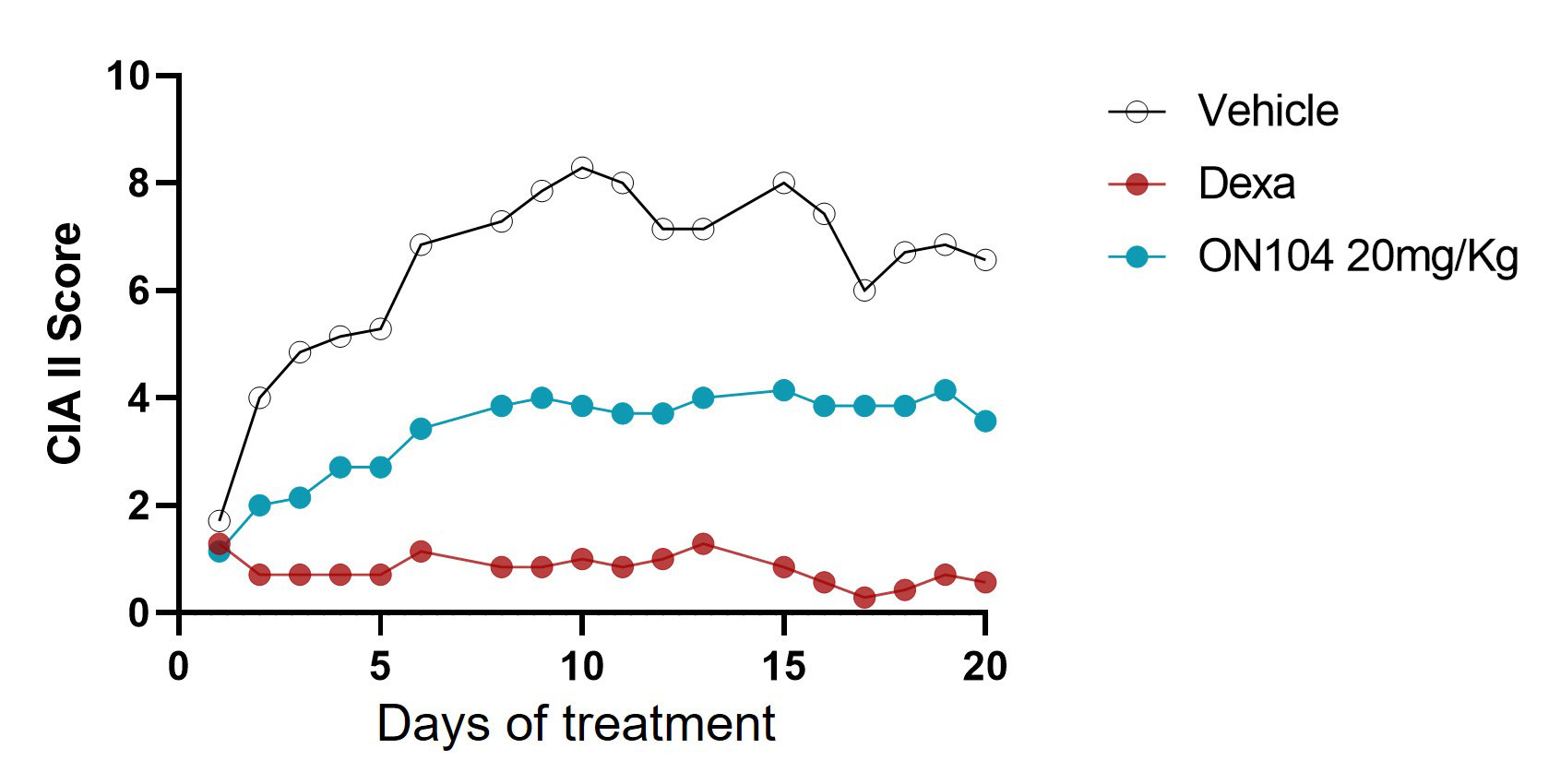Session Information
Date: Saturday, November 12, 2022
Title: RA – Treatment Poster I
Session Type: Poster Session A
Session Time: 1:00PM-3:00PM
Background/Purpose: Macrophage migration inhibitory factor (MIF) is a primary mediator of adaptive and innate immune responses, as well as a primary counter-regulator of glucocorticoids (GCs), and therefore a pivotal regulator in rheumatoid arthritis (RA). MIF occurs in two immunologically distinct conformational isoforms, reduced MIF (redMIF) which is ubiquitously present in various tissues and the circulation of healthy subjects, and the disease-related and druggable isoform oxidized MIF (oxMIF). Thus, targeting oxMIF represents a new and promising treatment option for patients with autoimmune disorders such as RA.
Methods: By antibody engineering, we developed the antibody ON104 which has excellent biophysical properties and is specifically directed against oxMIF. ON104 was administered twice weekly in DBA/1J mice with collagen-induced arthritis (CIA). Disease severity in CIA mice was assessed by clinical scoring of paw swelling and histological examination of joints. Synergistic effects of ON104 and GCs are tested.
Results: ON104 treatment substantially improved the clinical symptoms in the CIA model compared to the vehicle-treated control (Figure 1). Synergistic effects of sub-therapeutic doses of dexamethasone and ON104 using the CIA model are evaluated.
Conclusion: ON104 has the potential to become a well-tolerated non-steroidal anti-inflammatory drug for patients with RA. Due to the previously reported synergy of oxMIF neutralization and the anti-inflammatory effects of GCs, ON104 represent a new treatment option for patients with RA, especially for those having frequent rheumatoid flares and significant GCs side effects.
To cite this abstract in AMA style:
Landlinger C, Ferhat M, Nicoletti f, Thiele M. Targeting Oxidized Macrophage Migration Inhibitory Factor (oxMIF) – a Novel Treatment Approach for Rheumatoid Arthritis [abstract]. Arthritis Rheumatol. 2022; 74 (suppl 9). https://acrabstracts.org/abstract/targeting-oxidized-macrophage-migration-inhibitory-factor-oxmif-a-novel-treatment-approach-for-rheumatoid-arthritis/. Accessed .« Back to ACR Convergence 2022
ACR Meeting Abstracts - https://acrabstracts.org/abstract/targeting-oxidized-macrophage-migration-inhibitory-factor-oxmif-a-novel-treatment-approach-for-rheumatoid-arthritis/

